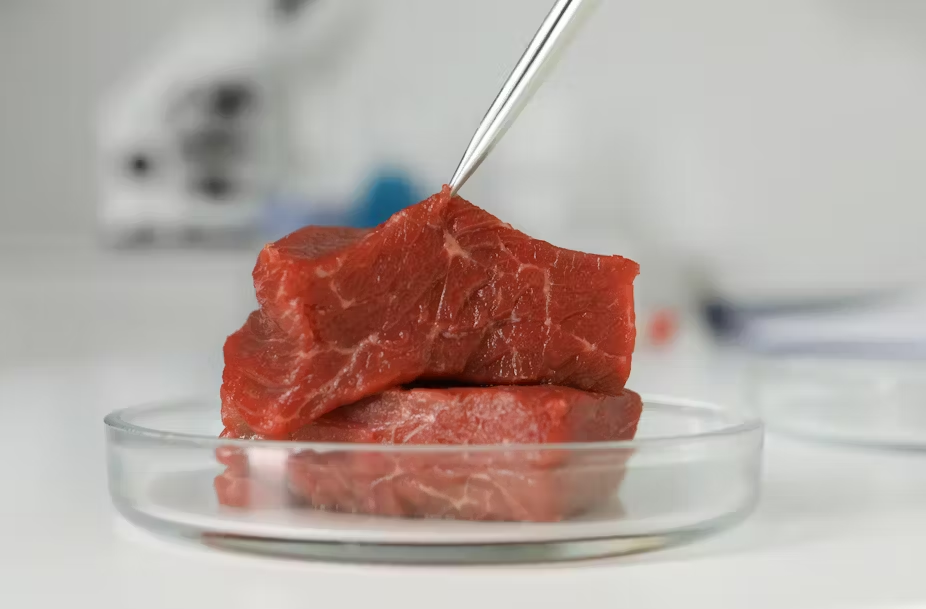ITALY OUTLAWS LAB-GROWN MEAT WITH FINES UP TO €60,000—SPARKING GLOBAL DEBATE OVER TRADITION, FARMING, AND THE FUTURE OF FOOD
Italy has done something no other country has dared to do—it has become the first nation in the world to outright ban the production, sale, and import of lab-grown meat. The law, passed in November 2023, isn’t just a regulation; it’s a cultural statement. With penalties of up to €60,000 for violations, the ban was championed as a way to defend not only Italian agriculture but the very heart of its culinary traditions and food identity.
The move was celebrated by Italy’s Agriculture Minister, who is part of Prime Minister Giorgia Meloni’s Brothers of Italy party. He framed it as a fight for health, jobs, and the preservation of centuries of food heritage. In a country where food is deeply tied to culture, family, and national pride, the idea of replacing traditional farming with what many politicians called “synthetic food” was seen as more than just an economic risk—it was seen as a threat to Italy’s way of life.

One detail that grabbed headlines was the extension of the law beyond lab-grown meat itself. Plant-based products in Italy can no longer use meat-related terms like “steak” or “salami” on their labels. The reasoning? To protect authentic food terminology and prevent consumers from being misled. While this might sound small, it reflects a broader push for what is being called “food sovereignty”—the belief that Italy should safeguard its food and farming practices from outside influence and lab-based alternatives.
The powerful Italian farming group Coldiretti threw its weight behind the ban, rallying over 500,000 signatures in support. Farmers argued that they weren’t just protecting their jobs, but their children’s futures and the deep relationship Italians have with their land. Their campaign struck a chord with citizens who see food not just as fuel, but as tradition, history, and identity.
Of course, not everyone is cheering. Scientists, environmentalists, and animal welfare advocates have criticized the law as short-sighted and anti-innovation. They argue that lab-grown meat—while not yet approved in the EU—could eventually play a major role in cutting greenhouse gas emissions from traditional farming. Advocates of alternative proteins see it as a tool to fight climate change, reduce land use, and provide ethical meat without slaughter. To them, Italy’s move feels like shutting the door before the conversation even started.

The law may not be the final word, either. Critics point out that Italy bypassed parts of the EU’s notification process, which could leave the ban vulnerable to challenges at the European level. Under single-market rules, one member state cannot simply outlaw products in ways that undermine fair trade across the EU. Whether Brussels steps in remains to be seen, but the friction is clear.
And yet, behind all the legal details, the story feels like a clash between the past and the future. Italy is a country where food is sacred—where dishes aren’t just recipes but rituals. When climate change is already hitting Italian agriculture with droughts, rising costs, and unpredictable weather, the pressure for sustainable innovation is real. But so is the fear that in embracing it, something irreplaceable could be lost.

Interestingly, Italy is not alone. Similar pushback is happening elsewhere, with Romania and some U.S. states exploring restrictions on lab-grown or plant-based alternatives. These debates suggest that the world isn’t just asking how we will eat in the future—it’s asking who gets to define what counts as real food.
The Italian ban is both symbolic and practical. Symbolic, because it shows a nation drawing a line around its traditions. Practical, because it creates real economic barriers for innovators who hoped to test the future of meat in Europe’s kitchens. Whether this protects culture or stifles progress will be debated for years to come. For now, though, Italy’s message is loud and clear: food is not just about what we eat. It’s about who we are.


